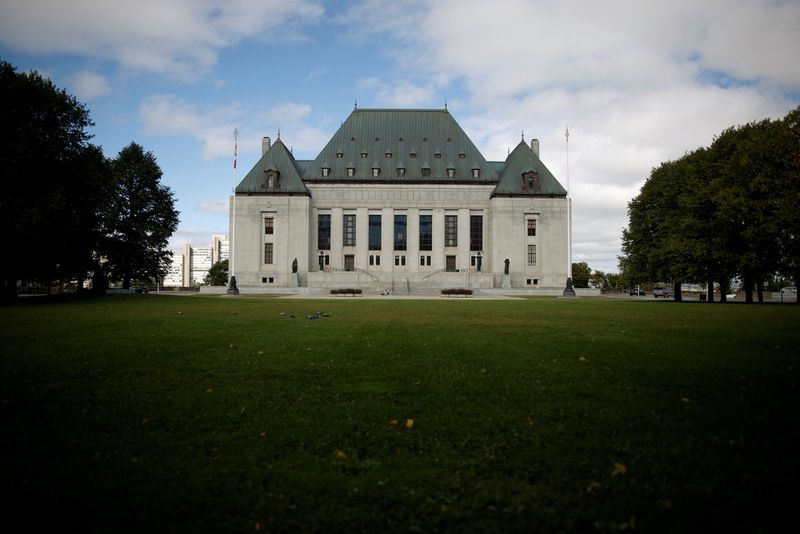By Anna Mehler Paperny
TORONTO (Reuters) - Canada's highest court is set to hear arguments on Tuesday on when a young person can be considered an adult for sentencing purposes.
The result may reshape how Canada sentences youth and could, a lawyer told Reuters, set an example for other western countries to follow.
At issue are the cases of I.M. and S.B., two young men who cannot be identified under Canadian law because the crimes they were convicted of took place when they were minors.
I.M. was convicted of first-degree murder following a 2011 stabbing, when he was 17.
S.B. was convicted of first-degree murder following a 2010 shooting, when he was 16.
Both were sentenced as adults, to life sentences with no parole eligibility for 10 years.
They are appealing their sentencings to Canada's Supreme Court, arguing prosecutors did not meet their obligation in rebutting the presumption of the accuseds' "diminished moral blameworthiness".
Under Canadian law, people accused of crimes committed when they were under 18 are considered less culpable for their actions because of immaturity. The prosecutor can apply to have them treated as adults.
A 2008 Supreme Court decision put the burden on prosecutors to rebut the presumption a youth has diminished moral blameworthiness in order for them to be treated as an adult.
Lawyers for I.M. and S.B. argue the bar for rebutting that presumption needs to be high and should require the presentation of expert evidence.
They also argue it is not enough for an offence to be serious: A young person has to have the maturity to be sentenced as an adult.
The government argues in its court filing the seriousness of an offence is relevant to assessing moral blameworthiness, that expert evidence is not required and that the I.M. and S.B. were properly sentenced as adults.
It is common for youth convicted of serious offences to be sentenced as adults, according to University of British Columbia law professor Debra Parkes. Of the 102 murder cases involving youth she studied, prosecutors sought adult sentences in 89 and they were imposed in 62, all of them life sentences.
"It's actually more the norm to sentence young people as adults when the charge is murder," she said.
Nader Hasan, lawyer for I.M., said a Supreme Court decision could clarify when a child can be sentenced as an adult - something now done inconsistently.

"The presumption should be that kids are sentenced as kids unless there's a really good reason not to. And that really good reason has to come in the form of expert evidence," he said.
"I'm hopeful that this case, if we're successful and if we start seeing more youth sentences, can serve as a positive example of what youth sentencing in a democracy ought to be."